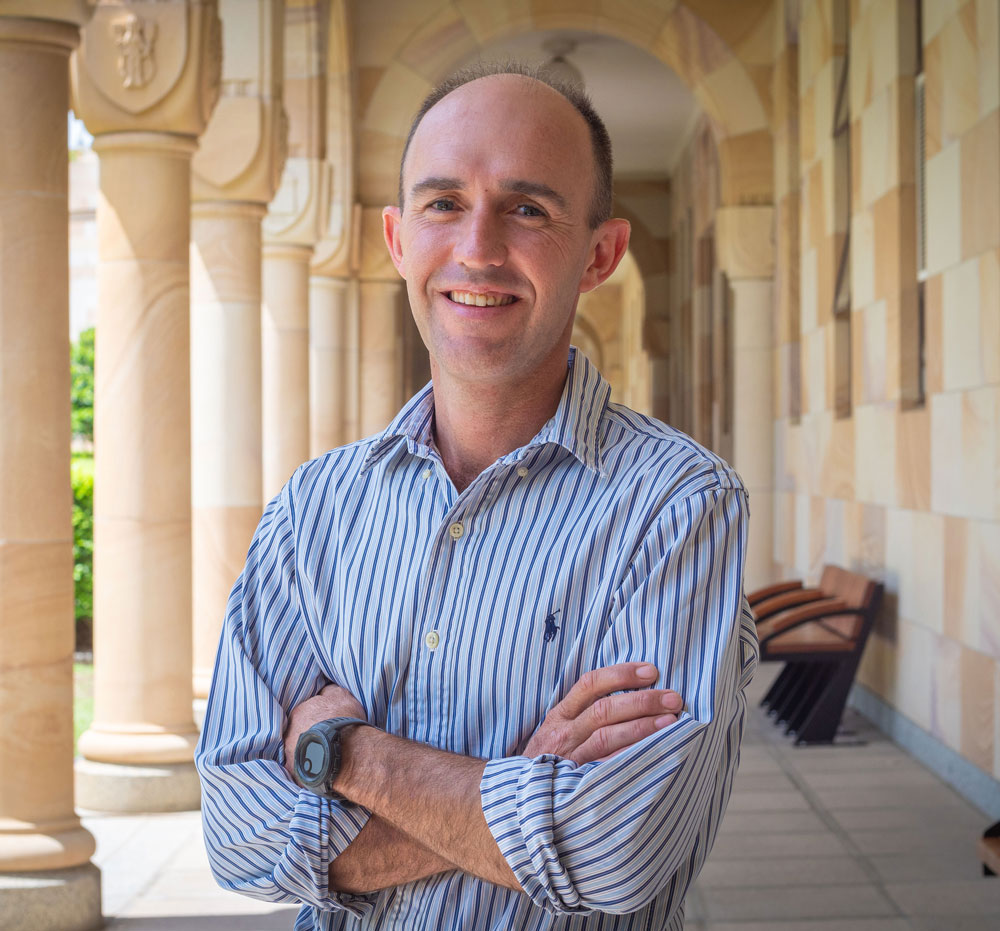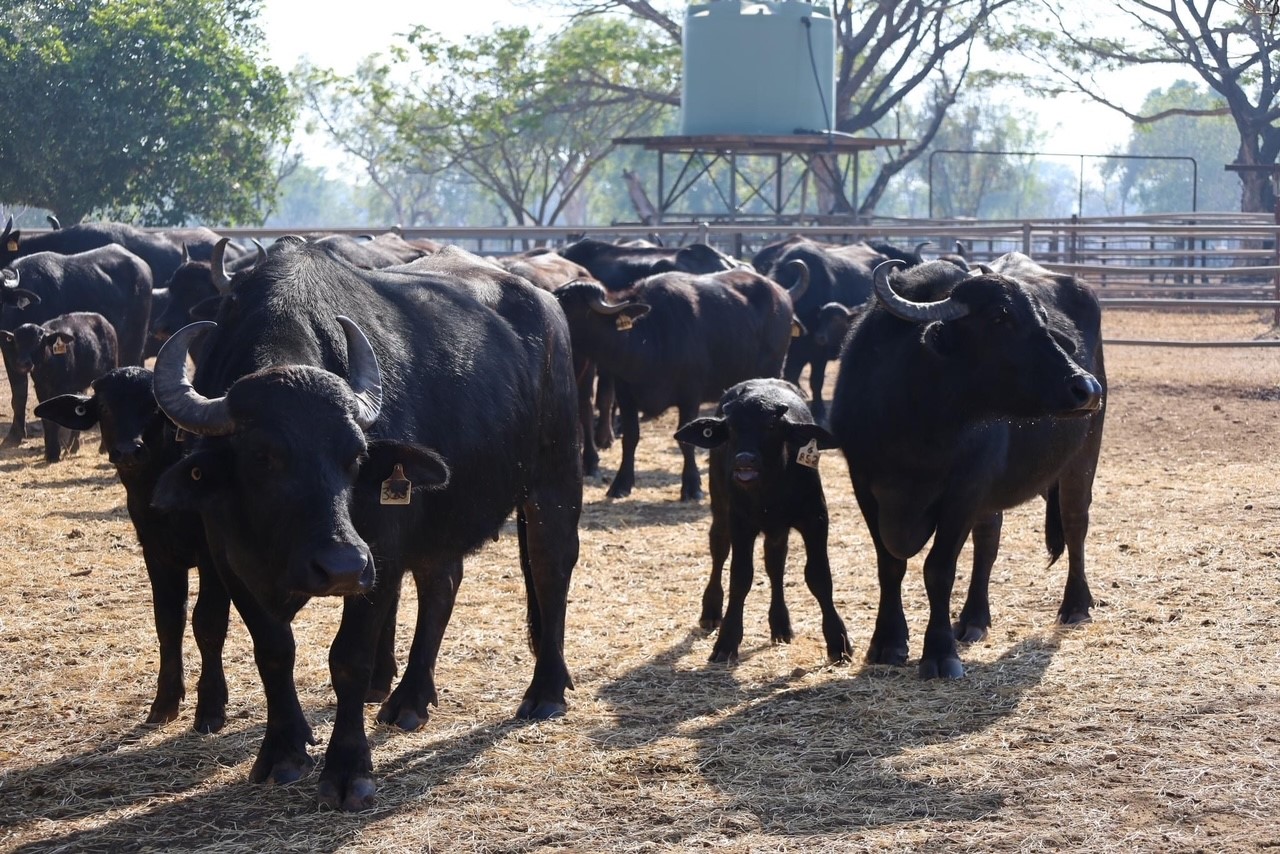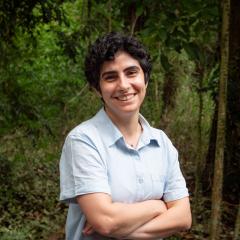A new research project by AgriFutures Australia and the Cooperative Research Centre for Developing Northern Australia (CRCNA) is set to examine the wild-harvest buffalo supply chain in the Northern Territory.
The first-of-its-kind project, Supply Chain Best Practice to Improve the Health and Welfare of Free-Range Buffalo Harvest in Arnhem Land – Northern Territory, aims to identify the barriers and potential opportunities to ensure the industry’s sustainable growth.

Since the introduction of buffalo to Australia in the 1880s, the industry has developed a free-range sector in the NT and a dairy buffalo sector which operates in most states.
Most free-range buffalo in the NT are found in unrestricted herds across Arnhem Land and other areas of Indigenous land, where they have important and often competing economic, environmental and social-cultural impacts on the land and local communities.
Despite the steady growth of the meat and dairy buffalo sectors in Australia, there are risks and challenges which threaten industry viability.
As identified in the AgriFutures Buffalo Program Strategic RD&E Plan (2021-2025), the industry’s highest priority is addressing animal welfare.
AgriFutures Australia Senior Manager – Levied and Emerging Industries Ellen Buckle said this project will ultimately provide information on best practice in the buffalo supply chain
“There’s a real willingness in the industry to work together on this and it is often difficult to get that sort of consensus and movement,” Ms Buckle said.
"“The project, funded by the AgriFutures Buffalo Program and the CRCNA and led by The University of Queensland, will run until June 2026 and involves a consortium of seven research entities, including the Northern Territory Government, Northern Territory Buffalo Industry Council, Central Queensland University, and industry experts Neil MacDonald and Dr Rodd Dyer."
The CRCNA will additionally support research on the impact of Arnhem Land Indigenous communities in the buffalo industry.
UQ researcher Dr Kieren McCosker said the project will develop a sustainable framework for the buffalo industry with practical recommendations that balance complex economic, environmental and cultural needs, particularly for Indigenous communities.
“No one has done a study like this before for the buffalo industry,” he said.
“We will map out the full supply chain, identify the pinch points, potential intervention points and provide some direction and areas of improvement for the betterment of the industry.”
"The results of this research will help make rules and practices that ensure the highest level of animal wellbeing and make sure the buffalo are healthy throughout their supply chain journey, assisting organisations like the Australian Standard for Export of Live Animals (ASEL).

Ms Buckle said the project also recognises Indigenous communities that depend on buffalo farming for food and jobs.
"We'll work with Indigenous groups that have a good relationship with these communities. We want to understand the needs and requirements of these communities and what we can do to enhance that further through ongoing research investments,” she said.
“Comprehending motivations for different buffalo management strategies are key considerations in our project activities.
“Our approach is multi-faceted, and we’ll be working with well-established and recognised Aboriginal representative groups, such as the Northern Land Council, Mimal, local rangers and Indigenous Pastoral Production groups who have existing relationships with the communities.
“This research project aims to secure the sustainable growth of the Northern Territory's wild-harvest buffalo industry in order to deliver practical recommendations for the industry's ongoing success and growth and its role in growing the long-term prosperity of Australia’s rural industries.”
Regular updates will be shared with industry stakeholders as the project progresses.
Images are available here.
Media: Dr Kieren McCosker, k.mccosker@uq.edu.au, +61 447 828 315; Denstu Creative PR, Ingrid Lee-Scott, +61 410 047 767; QAAFI Comms, Natalie MacGregor, n.macgregor@uq.edu.au, +61 409 135 651; or visit https://agrifutures.com.au/rural-industries/buffalo/.
The Queensland Alliance for Agriculture and Food Innovation is a research institute at The University of Queensland supported by the Queensland Government via the Queensland Department of Agriculture and Fisheries.



